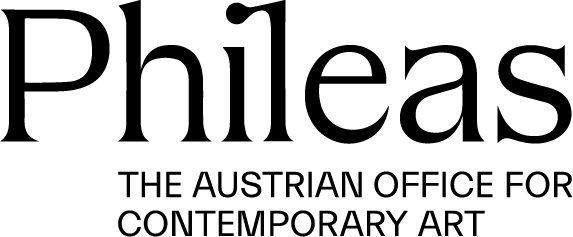The first Austrian Pavilion at the Gwangju Biennale
Gwangju, South Korea
7 September - 1 December 2024
On 5 September 2024 the first Austrian pavilion was opened at the Gwangju Biennale in South Korea, which Phileas commissioned and funded jointly with the Federal Ministry for Arts, Culture, the Civil Service and Sport.
For Austria's first national participation in 2024, Liesl Raff transforms the LEEKANGHA Art Museum into Club Liaison – an expansive sculptural installation and performance space inspired by cabaret stages, fringe theatres, underground clubs.
In her installation, hand-cast purple latex curtains, an atmospherically lit stage, and ornamental light objects offer an intimate setting and a space for performance and retreat. For years, Raff has pursued a sculptural practice that is centred around the idea of bringing things together – often forming what she calls a liaison. This can be seen in the contrasting materials she uses, the spaces she creates, and the people that she collaborates with or hosts. To her, space is less a physical location and more a phenomenon where time, historic inscription, social participation and interaction convene. Club Liaison focusses on the relationship between objects, spaces, and viewers, fostering a sense of togetherness and collective participation. The accompanying soundscape by Austrian artist Karolina Preuschl enhances the sensory experience.
On selected evenings during the Biennale, Club Liaison will open its doors and hand over the stage to the live arts. The invited Austrian– and Korean-based artists have different backgrounds – from contemporary dance to performance art to experimental music – but share an interest in practices where popular genres and forms of entertainment meet a conceptual and experimental approach. In a nod to Club Liaison being inspired by cabaret stages, they explore the subversive potential of the absurd, the dramatic or the sensual. The performances investigate how the stage can be a place to push boundaries, insert subtle shifts and offer new readings; destabilizing expectations and norms. As a central element of Club Liaison, the performance programme aims to highlight the transformative power of collective experience.
The Gwangju Biennale is the most important biennial for contemporary art in Asia, attracting around 500,000 visitors each edition. Established in 1995 as a tribute to the Gwangju Democratisation Movement, it began to host national pavilions in 2018, which are located at various venues across the city.





